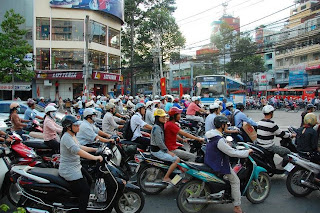This summarizes my principles during student days. These principles have driven me in my university and social activities.
PRINCIPLES
1. Do the right thing.
This is the most important yet the most difficult thing. I’m sure that if I do something unacceptable, it will be revealed sooner or later. And when I realize that I made a mistake, it is better to say, “I’m wrong”. What's more, it is one of the best criteria for decision making.
2. Face difficulties.
I had a compulsory study of micro and macro economics in university. However, I could not get it even after taking the exam three times, because of my laziness. I was almost dropped from the college. At the last moment, I decided to tackle it. I started to take a basic math class. At the end of every class, I asked the professor the points that I couldn’t understand. I studied with freshmen when I was a junior. Once, a cute girl laughed at me. “He asked too many questions”, she said. It was a terrible time for me. Nevertheless, it was necessary for me to overcome these difficulties. If I had run away from this situation, I would have given up on everything. Fortunately, I finally got AA-grade in micro economics and A-grade in macro economics. Hence, we should keep in mind that it will get worse, before it gets better.
3. Stretch myself.
I have assigned several positions that exceed my capacity especially at OVAL, in Tohoku, and other activities. I have tried to meet others expectations and it certainly did stretch my capability.
I have assigned several positions that exceed my capacity especially at OVAL, in Tohoku, and other activities. I have tried to meet others expectations and it certainly did stretch my capability.
4. Discipline myself.
Studies in university are more important than I had expected. Self-learning is also crucial for me. Keep learning, don’t settle.
5. Differentiate myself.
I have been pursuing my specialty. Find out what you are good at, and develop it.
6. Be comprehensive.
I have poked my nose into a few areas where I knew little: they are business, NPOs and government. I learned about business at OVAL and will learn in P&G. I worked at NPOs or similar organizations at WISE, ETIC, and Tunapro in Tohoku. I also considered working as a bureaucrat and studied law for the exam. These experiences enable me to have several viewpoints.
7. Decide it.
The only thing that has helped me make progress is decision making. Don’t think too much. Decide it and just do it.





